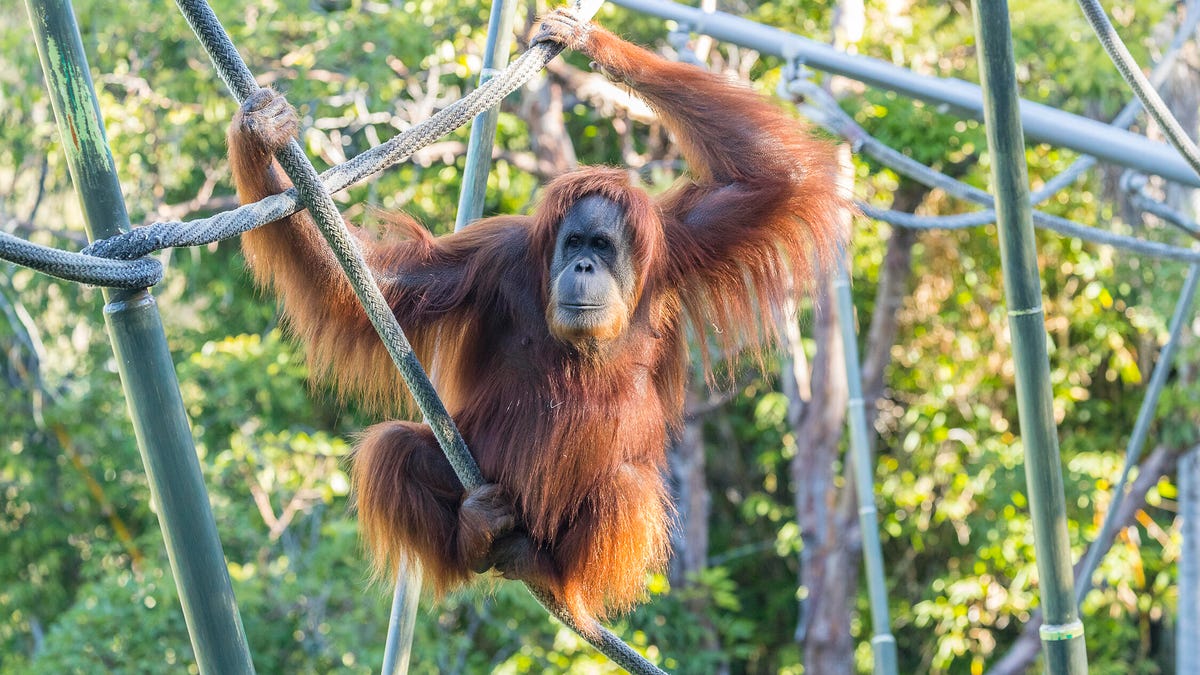Great apes at San Diego Zoo receive experimental COVID-19 vaccine for animals
Following an outbreak among the zoo's gorillas in January, three orangutans and five bonobos were given a COVID-19 vaccine developed for animals.

Orangutans were among the great apes at the San Diego Zoo that reportedly got an experimental coronavirus vaccine.
Eight great apes at the San Diego Zoo have each received two doses of an experimental COVID-19 vaccine developed for animals, National Geographic reports. Three orangutans and five bonobos received both shots of the vaccine while distracted by treats, and have reportedly not had any negative side effects. The zoo will soon be able to check for antibodies to know if the vaccine worked as intended.
A Hong Kong pharmaceutical company initially developed this experimental vaccine for use on cats and dogs; using it on the great apes was a calculated risk. Nadine Lamberski, chief conservation and wildlife health officer at the San Diego Zoo Wildlife Alliance, told National Geographic, "It's not like we randomly grab a vaccine and give it to a novel species. A lot of thought and research goes into it. What's the risk of doing it and what's the risk of not doing it? Our motto is, above all, to do no harm."
Giving a vaccine developed for one species to another is relatively common. This particular move was likely prompted by the COVID-19 outbreak among the zoo's apes in January. The zoo has since confirmed that the infected apes have recovered.
San Diego Zoo confirmed that some members of the orangutan and bonobo troops have been vaccinated from "a supply strictly intended for nonhuman use." The zoo's veterinarians vaccinated animals most at risk of infection. The previously infected gorilla troop did not receive the vaccine as it was assumed they had developed their own antibodies to the virus.
Vaccinating animals is an ongoing process at the San Diego Zoo, with the first administered starting in January and with the last few vaccines scheduled to be given in March.

